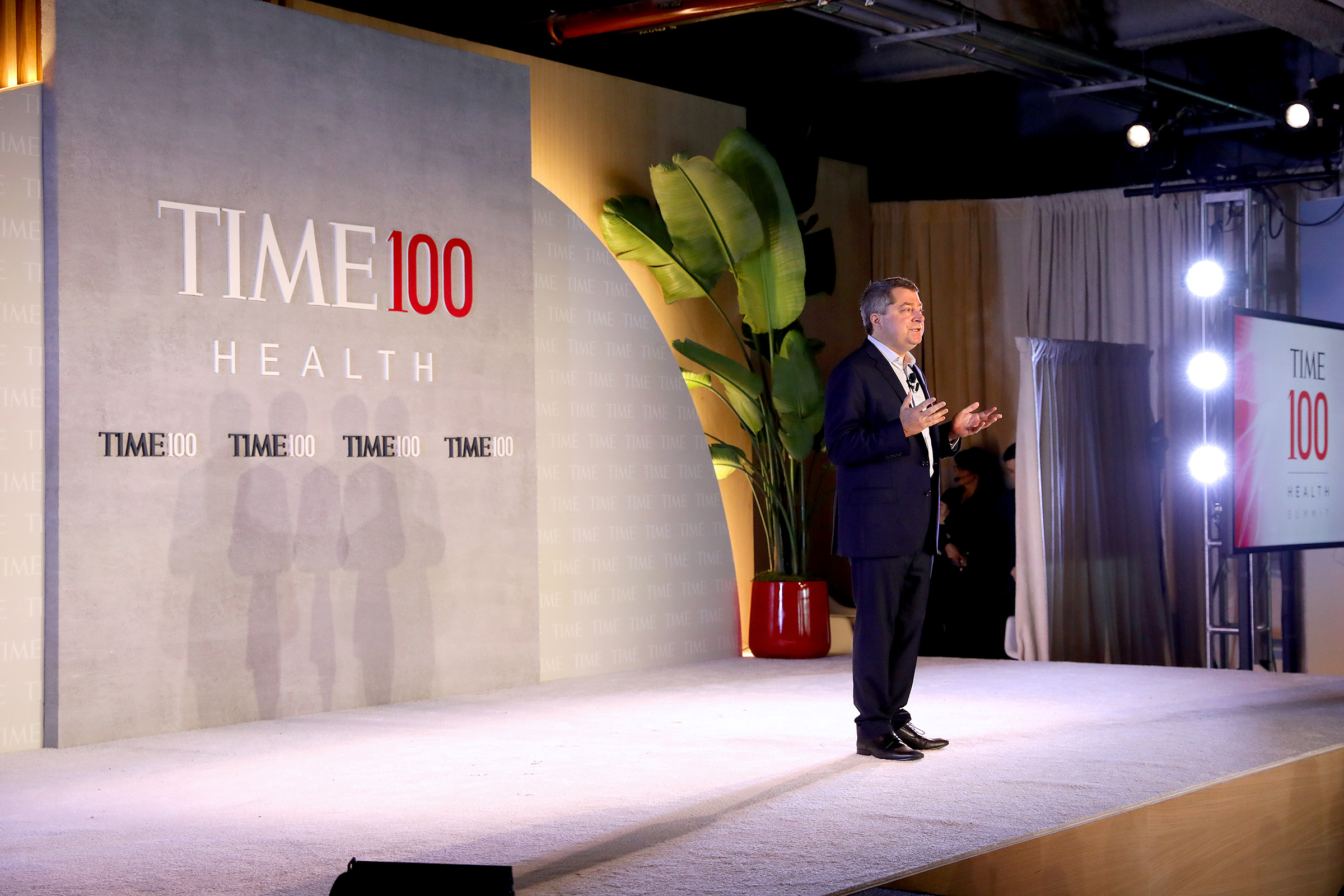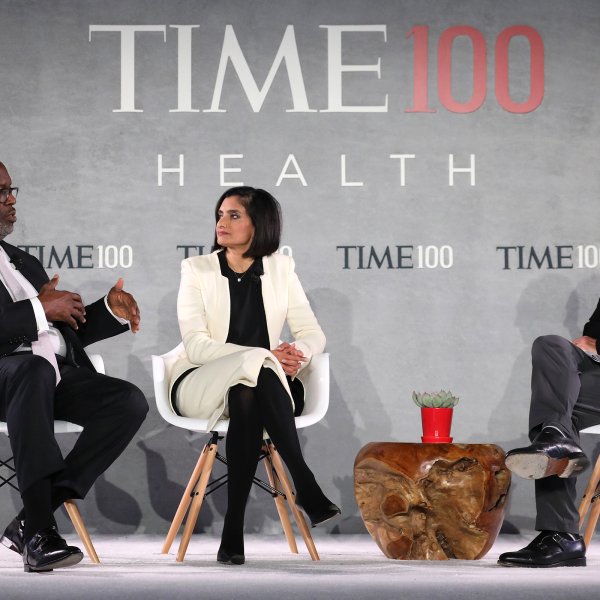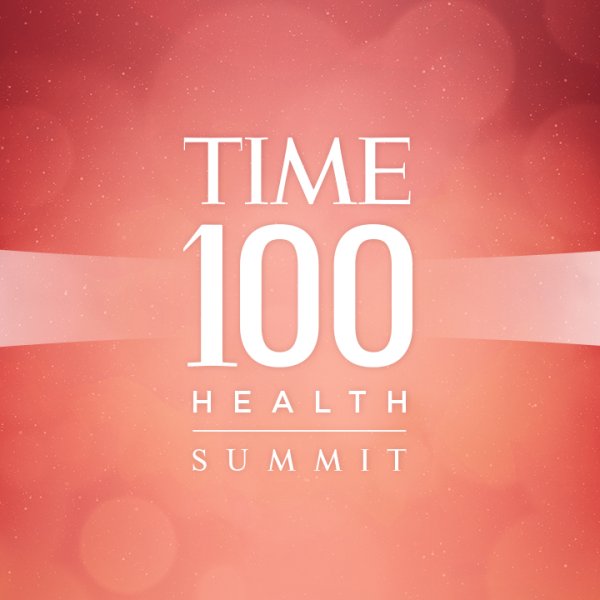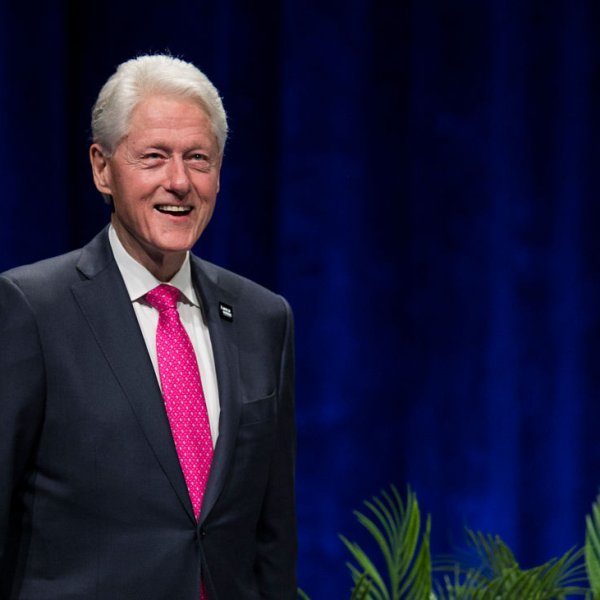<!-- wp:gutenberg-custom-blocks/featured-media {"id":"5703407","url":"https://api.time.com/wp-content/uploads/2019/10/time-100-health-summit-001.jpg","caption":"Editor-in-Chief \u0026amp; CEO at TIME, Edward Felsenthal, speaks onstage during the TIME 100 Health Summit at Pier 17 in New York City on Oct. 17, 2019.","credit":"Cindy Ord—Getty Images for TIME 100 Health","mediaSize":"medium-jw","playlistId":"cHSDCvbH","goJwPlayer":true} -->

<!-- /wp:gutenberg-custom-blocks/featured-media --><!-- wp:paragraph -->
TIME Editor-in-Chief Edward Felsenthal welcomed leaders from across the health-care community to the magazine’s first TIME 100 Health Summit.
More Coverage
<!-- /wp:paragraph --><!-- wp:paragraph -->
The TIME 100 Summit will feature current and former leaders from various fields — including former President Bill Clinton, former Vice President Al Gore, NIH Director Dr. Francis Collins, and former Planned Parenthood President Dr. Leana Wen — Thursday in New York City. Felsenthal, in his opening remarks, told the assembled audience of scientists, physicians, activists and business leaders that the spirit of the summit is to invite leaders from various fields to work together to address of the most significant health challenges facing the world.
<!-- /wp:paragraph --><!-- wp:paragraph -->
“There’s a reason why Health is central to what we do at TIME,” Felsenthal said. “We are living through epic global events, with a news cycle moving at warp speed, yet there is no topic more personal or more important to our audiences than their health and the health of their families. There has never been more health information available to patients, yet at the same time so much confusion about what information can be trusted. There has also never been more innovation in both wellness and treatment. And yet unequal access remains one of the blights of our age.”
<!-- /wp:paragraph --><!-- wp:paragraph -->
He noted that TIME has reported that your zip code may be one of the most significant influences on an individual lifespan. For instance, the projected lifespan of a New Yorker may vary by decades depending on which neighborhood they live in, according to NYU data.
<!-- /wp:paragraph --><!-- wp:paragraph -->
Felsenthal also invited Summit attendees to help produce the cover of next week’s issue of TIME, which he said will be “a special edition focused on what we as a society need to do to seize this incredible moment of possibility in health care.” He displayed several of the options, including a cover that would feature an article with the tag line “There’s Never Been a Better Time to Be Sick…. So Long as You’re Rich.”
<!-- /wp:paragraph --><!-- wp:paragraph -->
Read the full remarks below:
<!-- /wp:paragraph --><!-- wp:gutenberg-custom-blocks/blockquote -->
We have an amazing program ahead of us today. With us here, not only on this stage but throughout the room, are hundreds of extraordinarily accomplished people from all over the health care community. You are physicians and policy makers, activists, innovators, scientists and CEOs. You are people with the power and the platforms to create lasting change.
You know, there’s a reason why Health is central to what we do at TIME. We’re living through epic global events, with a news cycle at warp speed, yet there is no topic more personal or more important to our audiences than their health and the health of their families. There has never been more health information available to patients, yet at the same time so much confusion about what information can be trusted. There’s also never been more innovation in both wellness and treatment. And yet, unequal access remains one of the blight- one the blights of our age.
What, for example, is the biggest single factor in determining how long each of us will live? It may be your zip code, as my colleagues at TIME reported earlier this year. Here in New York, according to NYU data, average lifespans are almost 20 years longer for people living on the Upper East Side than their neighbors in nearby East Harlem.
Those challenges—and opportunities—are what bring us together today. They are also what our growing TIME 100 community is all about, convening the world’s most influential people across every field toward collaboration, action and progress.
In that spirit of collaboration, we’re going to do something today that we’ve never done before, which is invite all of you to help us produce next week’s issue of TIME, a special edition focused on what we as a society need to do to seize this incredible moment of possibility in health care.
To get the thinking going, our Creative Director, DW Pine, who is I think- wave DW – over there- DW has mocked up a few covers. This is what we do every week at TIME, although usually with a smaller group!
We’re going to talk about, today about medical advances like CRISPR gene editing and unlocking the microbiome with – Do we have the covers? – Good. With some of the great innovators of our time like Dr. Carl June, the immunologist is here, geneticist Dr. Eric Lander, surgeon Dr. Laura Esserman—all of them past Time 100 honorees.
We’ll talk about how AI and machine learning and how they’re beginning to transform cancer treatment and elder care. This is the cover on that subject.
And we have an extraordinary group of policy leaders to discuss the public health challenges we face, from the dire consequences of climate change for public health to vast inequalities in access to care. We are honored to have Vice President Al Gore with us today; he’ll be here on stage momentarily. The 42nd President of the United States, Bill Clinton, will be joining us this afternoon. And from the Trump Administration, we have the three most powerful officials in the federal health care system with us: Secretary of Health and Human Services Alex Azar, Director of the Center[s] for Medicare and Medicaid Services Seema Verma and the director of the NIH for the past decade, Dr. Francis Collins. He oversees a $39 billion budget that funds some of the world’s great research institutions.Throughout the day I hope each of us get a chance to think about what we can all contribute toward a better, healthier world. And I encourage you to come find me or our Summit co-chairs Alice Park and Dr. David Agus—you’ll meet them shortly– to share your own ideas about these opportunities and challenges and your own thoughts about what we at TIME should highlight in next week’s issue for our readers around the world. You can also email us any time today or in the coming days at health@time.com
Finally, I want to thank some special people for helping to make the inaugural TIME 100 Health Summit a reality: our partners the Alzheimer’s Association, The Rockefeller Foundation, Khosla Ventures, and Smartsheet; our wonderful owners and co-chairs Marc and Lynne Benioff, who have given all of us at TIME the extraordinary opportunity to write a new chapter in our own story; and to all of you in the audience as well viewers around the world who are joining our community via livestream on Time.com. Thank you!
And now it is my privilege to introduce a very special performance from a show that has done so much to elevate the conversation around mental health. Ladies and gentlemen, please welcome the star of Broadway’s Tony Award winning hit musical Dear Evan Hansen, Andrew Barth Feldman.
<!-- /wp:gutenberg-custom-blocks/blockquote -->



